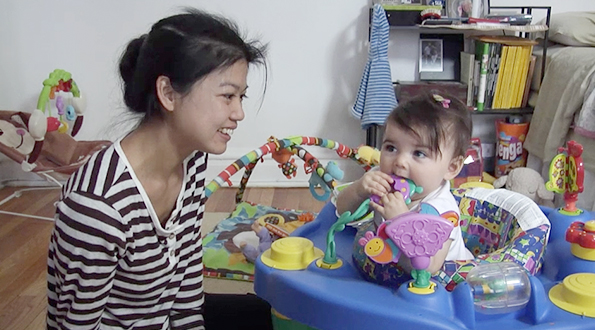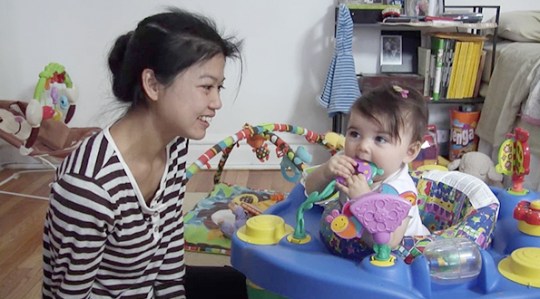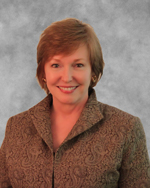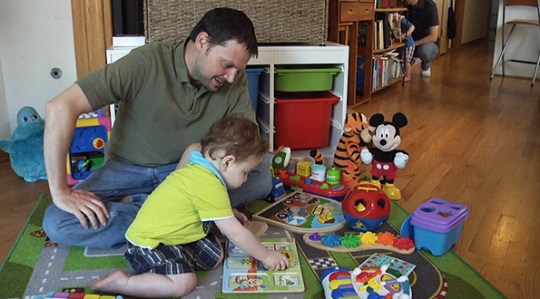A chasm exists in language learning.
It involves the cumulative total of words that babies and toddlers hear — and even more importantly, the words they don’t hear. It’s called the “30 million word gap.”
“Research shows that by three years of age, children from low-income households hear 30 million fewer words than a child from a professional family,” says Dr. Brenda Fitzgerald, commissioner of the Georgia Department of Public Health.
“Language is nutrition for the brain,” says Fitzgerald, an ob/gyn. She has placed the word gap high on Georgia’s top 10 public health priorities for 2014.
If children don’t have good language skills, they can’t make good progress. And Georgia is losing too many before the age 3 when it comes to verbal proficiency.
“Placing a child in front of a television set won’t fill that gap,” Fitzgerald says. And once they fall behind with their vocabulary, it’s difficult for them to catch up. Research also shows that use of language in the home provides children with the richest vocabulary. Encouraging families to speak in the language they are most comfortable with is also important.
There are plenty of Georgia organizations interested in helping. This past December, the United Way of Greater Atlanta pledged to support the “Talk With Me Baby” program. It will give $500,000 each year for three years toward a new collaborative effort.
The Georgia program will begin by getting health care providers to start talking. Training nurses to introduce parents to the idea of talking to their babies is a crucial component. Training will extend to pediatric nurses, nurses in hospitals’ labor and delivery departments, and even those nurses who care for pregnant women.
The program will offer instructional videos for WIC clinics. These educational videos are for parents and health care providers to use together. Reminders for parents to start talking, such as magnets for the refrigerator, text messages or a smart phone app will also be part of the overall plan.
These varied applications can support parental or caretaker instructions. For example, if the infant is ready to try a banana, parents need to talk to the baby about the banana. Share with the infant that the color is yellow and the texture is soft. These are not difficult words.
The idea is to make sure when parents place bits of banana on a feeding tray there is added communication. The hope is it will continue throughout the day — every day. Although infants can’t respond in language, the words help to feed their brains.
“This innovative program came about as a response to a collaborative effort,” says Jennifer Stapel-Wax, associate professor in the Department of Pediatrics at Emory and director of Infant and Toddler Clinical Research Operations at the Marcus Autism Center.
“In addition to all the babies living in generational poverty, we want everyone to spend more time talking with their infants,’’ Stapel-Wax says. “We believe this is the program that can make a difference,” she says.
The state’s Department of Public Health and Department of Education, Emory University’s Nell Hodgson Woodruff School of Nursing and Georgia Tech are all involved. At the helm is the Marcus center. There are specific measurable outcomes that serve as goals, such as grade-level reading proficiency for all children by the end of third grade.
“We were looking for the right available workforce, who could encourage and educate parents in the value of talking with their infants and children,” says Stapel-Wax. “We think we have it.”
“One area is to enrich vocabularies and fuel their young brains with language,” explains Stapel-Wax. “Babies are at risk for missing critical language nourishment.”
Not just what but why
The concept of this word gap isn’t new.
Dr. Dana Suskind, professor of surgery and pediatrics and director of the pediatric cochlear implantation program at the University of Chicago, is the founder and director of the Thirty Million Words Initiative. Suskind and her team believe that at the heart of every language environment lies a very tangible and ultimately modifiable variable: parent talk.
Illinois’ Thirty Million Words is an innovative parent-directed curriculum that focuses on the power of parent language to build a child’s brain and affect his or her future.
The program aims to raise a child’s early language environment to the level of a key public health indicator.
“Georgia is going to be at the forefront of this work and I’m very excited to learn about it,” says Suskind. “Nurses, too, are going to play a very big part.”
Suskind is passionate about helping to narrow the achievement gap and to ensure that all children reach their full potential.
The bottom line: The kids who start out ahead, stay ahead; the kids who start out behind, stay behind, according to Chicago’s Thirty Million Words Initiative. There is plenty of room for improvement nationwide, and Georgians are stepping up to the plate.
Ashley Darcy Mahoney, assistant professor and neonatal nurse practitioner at Emory’s School of Nursing, says, “We have the right project with the right people to bring everything together.”
Getting at the reason why low-income families talk to their children less is a key issue, says Mahoney, and the question “does not have [only] one answer.”
There may be cultural factors involved, or other things, such as single-parent homes, long working hours, or simply lack of knowledge, says Mahoney.
“Nurses occupy a privileged position of influence and trust among patients,” Mahoney says. “We can also provide important professional leadership in this effort. Our goal is to teach families about the importance of talking with their baby and how easy it is to do.’’
Judi Kanne, a registered nurse and freelance writer, combines her nursing and journalism backgrounds to write about public health. She lives in Atlanta.




